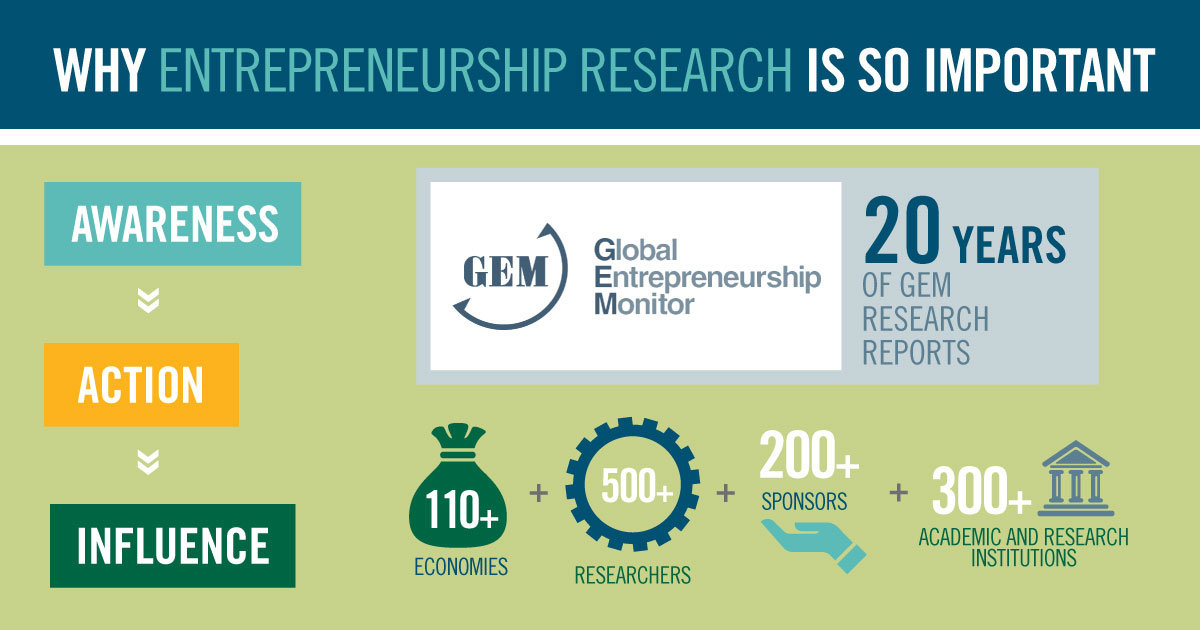How Can We Activate Entrepreneurs at Any Age?

Entrepreneurship is humming along in the United States, with stable rates of Total Entrepreneurial Activity (TEA) in the last seven years, according to the 2017 Babson-sponsored U.S. Global Entrepreneurship Monitor (GEM) report. Digging in by age group, we see variations. The GEM report indicates that TEA is lowest among people ages 18–24, 55–64, and 65–74. What accounts for these rates?
How Do Entrepreneurs View Opportunities—and Themselves?
Seventy-eight percent of entrepreneurs around the world pursue entrepreneurship because they identify an opportunity, or the “potential to create economic value through something new or innovative.”*
According to the latest GEM report, this number is even higher in the United States, at 86 percent. The problem is not in the perception of opportunity. The problem evidently lies in the quantum leap between recognizing opportunity and actually taking action.
So, do entrepreneurs across all age groups believe they have what it takes?
It turns out that perception of skill level follows a bell curve. It is lowest among the 18–24 age group (32 percent) and the 65–74 age group (49 percent), and it peaks in the 35–44 age group (65 percent).
As noted in the report, young entrepreneurs may experience “lack of suitable employment opportunities because of lack of credentials or experience.” At the same time, older entrepreneurs may experience “a lack of up-to-date skills, particularly because of expanding technology expertise needed across industries.”
Instilling an Entrepreneurial Mindset in Youth
Entrepreneurship itself has stepped up to empower these two bookend age groups and to champion their strengths and aspirations. University-based entrepreneurship programs are embracing the opportunity to develop young entrepreneurs.
“Their beginner’s mind allows them to see all of the opportunities,” said Janai Mungalsingh, manager of program strategy and curriculum design for youth programs at Babson’s Youth Impact Lab, part of The Lewis Institute for Social Innovation at Babson. The Youth Impact Lab activates young changemakers to move from thinking to acting, work through the entrepreneurial process, and arrive at solutions.
Through a range of curricular and cocurricular programs, the team delivers experiential learning opportunities to high school students from around the world. Ultimately, the Youth Impact Lab emphasizes not the outcome but the process. As executive director of The Lewis Institute Cheryl Kiser explains, “There’s a lot of people who define entrepreneurship as an outcome. We don’t. We define it as a habit and a practice.”
Entrepreneurship education, especially with youth, has been shown to yield results.
The national nonprofit BUILD is bringing together entrepreneurship and experiential learning in a program to decrease high school drop-out rates and to prepare students for academic and professional success. The outcomes are compelling: the average on-time graduation rate for students who finish the BUILD program is 97 percent, versus the 81 percent national average and the 73 percent national average for low-income students—and the takeaways are even more inspiring.
Edward Wilson, director of philanthropy for BUILD Boston, explains that the program helps to cultivate traits such as competence and resilience among the students. Via the experience of entrepreneurship, students’ perceptions of failure are transformed from “a bad thing” to “the most important thing,” he says.
And with exposure to and engagement with the entrepreneurship and business community, students receive the validation that “you belong in that setting.”
Exploring Entrepreneurship Later in Life
Discovering the path to entrepreneurship is necessary for many older entrepreneurs as well.
In “Senior Entrepreneurship: The New Normal,” founder and CEO of the Global Institute for Senior Entrepreneurship Elizabeth Isele notes, “Although senior entrepreneurship is widespread, there is a significant group of people for whom the option of becoming an entrepreneur is not seen as an option. For this group, an effort at building awareness is a necessary strategy.”
Isele, who is also a senior fellow in social innovation at The Lewis Institute, explains that even the word “entrepreneur” can be very intimidating and off-putting to this generation. She has called upon a range of agencies, particularly local community economic development leaders, to help change this perception.
Her recommendations are to set up “think tank” environments, where ideas are shared and feedback is offered, and to present these environments as opportunities to be curious and to explore.
Ultimately, local leaders can help seniors realize that they have, in fact, already been thinking and acting with an entrepreneurial mindset.
“You have to take the time to go back into their experience to draw out how they’ve been thinking entrepreneurially all along.”
Elizabeth Isele, Senior Fellow in Social Innovation at The Lewis Institute, Babson College
Serial entrepreneur Tim Driver, who founded RetirementJobs.com, also advises that “going out on your own can be the ultimate retirement job. You are effectively in the driver’s seat. You’re in control.”
Not only can these individuals enjoy the benefits of entrepreneurship, including schedule flexibility and staying close to home, but they also can deploy their unique strengths, including their extensive business experience, industry knowledge, and networks. And in doing so, they are providing definitive value to society.
“Have the Life You Want for Yourself, Not the One That Is Handed to You”
In a multitude of ways, there are organizations and thought leaders working to raise up entrepreneurship as a path and to celebrate the strengths, as well as to serve the needs, of society’s youngest and oldest potential entrepreneurs. Through findings from the latest GEM report, we see clear opportunity to engage, support, and connect with these age groups.
Wilson, speaking to BUILD’s mission, summed it up perfectly: “We want you to have the life you want for yourself, not the one that is handed to you.”
When an individual learns to work through problems, leverage a team, and plug into a community, his or her mindset is fundamentally shifted: Entrepreneurship is now desirable and viable.







